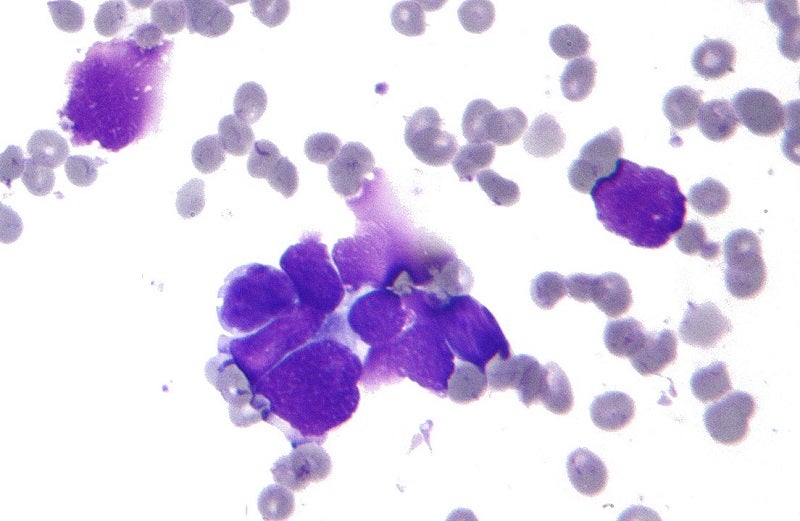

The US Food and Drug Administration (FDA) has approved Legend Biotech’s Investigational New Drug (IND) application to proceed with LB2102’s clinical development for treating extensive stage small cell lung cancer (SCLC).
LB2102 is an investigational autologous chimeric antigen receptor T-cell (CAR-T) therapy intended for the treatment of extensive SCLC in adult patients.

Discover B2B Marketing That Performs
Combine business intelligence and editorial excellence to reach engaged professionals across 36 leading media platforms.
The open-label, first-in-human Phase I clinical study has been designed for assessing the CAR-T therapy’s safety and preliminary efficacy in extensive stage SCLC patients, as well as in patients with large cell neuroendocrine carcinoma (LCNEC).
It will also determine the recommended dose for the Phase II study.
Legend Biotech Clinical Development vice-president Lida Pacaud said: “Lung cancer is a debilitating disease that often spreads quickly.
“On average, only 7% of patients with SCLC are alive five years after receiving their diagnosis.

US Tariffs are shifting - will you react or anticipate?
Don’t let policy changes catch you off guard. Stay proactive with real-time data and expert analysis.
By GlobalData“We are eagerly awaiting the start of this Phase I trial, and we hope that the study will provide much needed insight into the potential of this investigational CAR-T therapy.”
The company stated that LB2102 has been designed for targeting delta-like ligand 3 (DLL-3) selectively.
DLL-3 is a ligand which is restricted to various malignancies that include LCNEC, SCLC, certain other neuroendocrine tumours, and some prostate cancers.
It is also connected to tumour growth, migration, and invasion.
According to Legend Biotech, approximately 30,000 to 35,000 people are newly diagnosed with SCLC every year.
In September this year, the company’s Carvykti (ciltacabtagene autoleucel) received Japan’s Ministry of Health, Labour and Welfare (MHLW) approval to treat relapsed or refractory multiple myeloma.
Cell & Gene Therapy coverage on Clinical Trials Arena is supported by Cytiva.
Editorial content is independently produced and follows the highest standards of journalistic integrity. Topic sponsors are not involved in the creation of editorial content.





